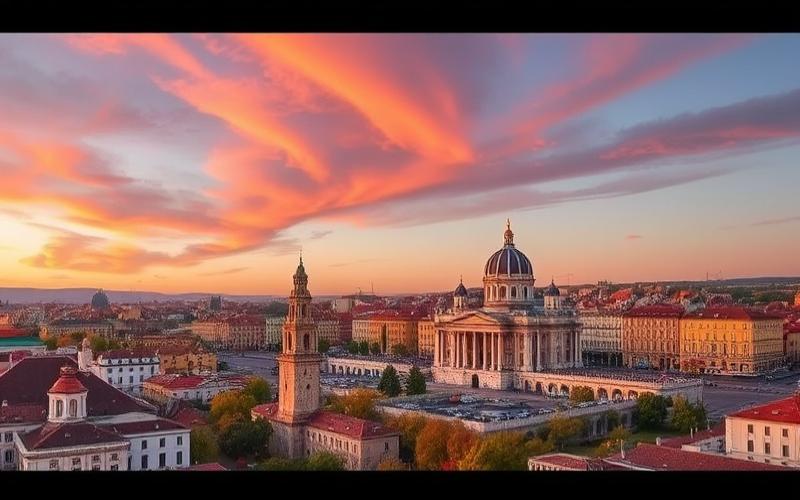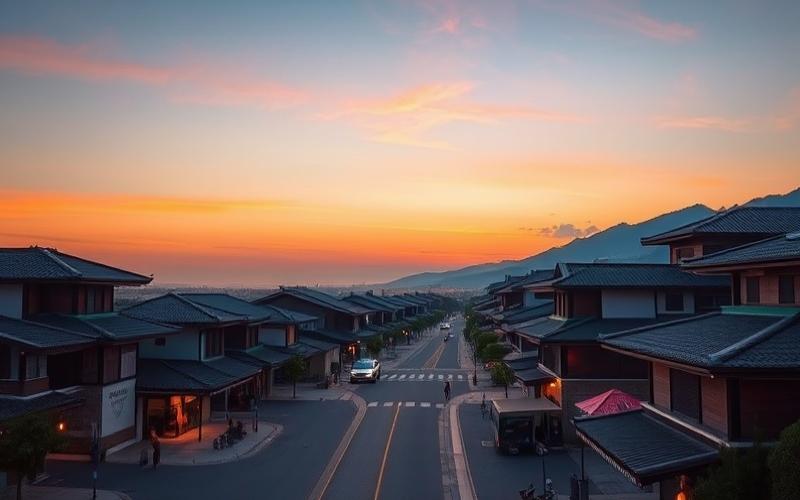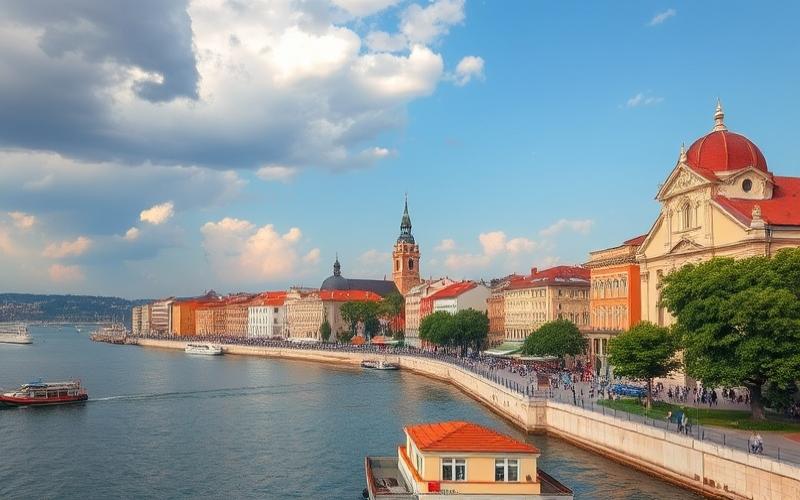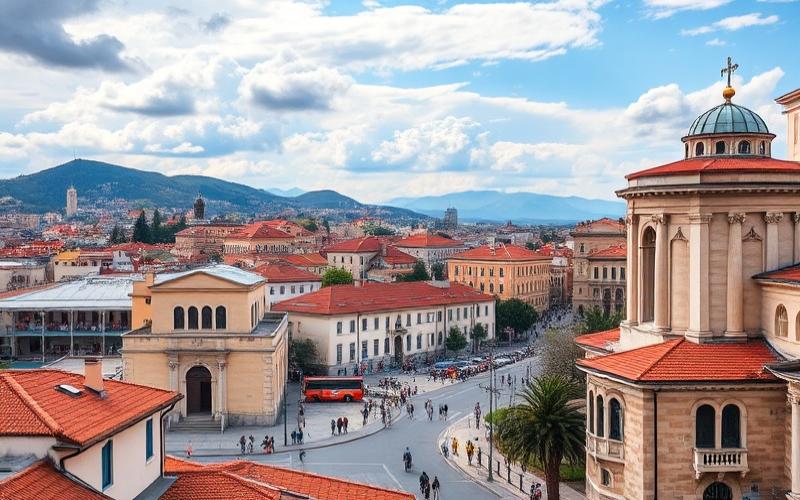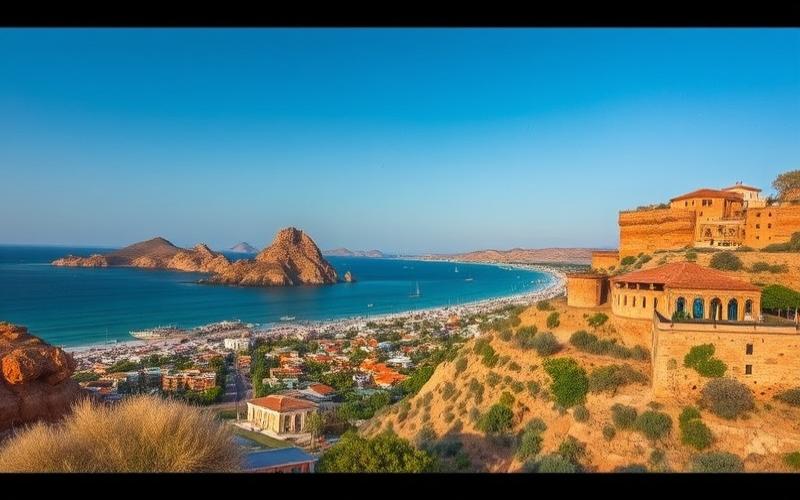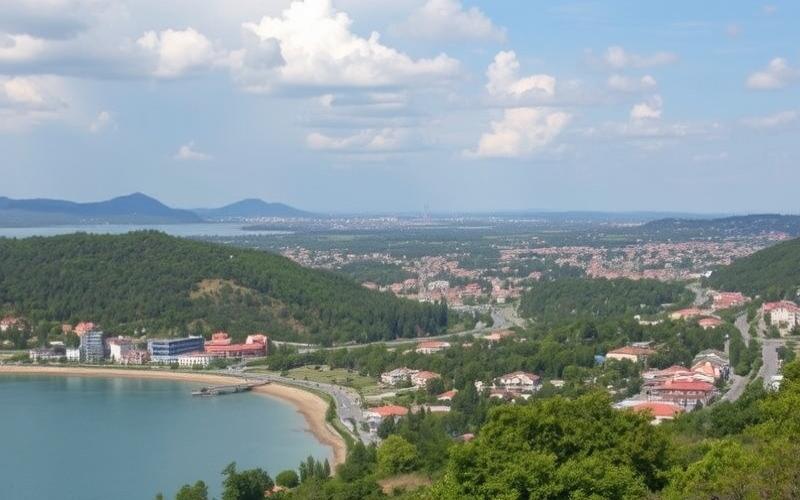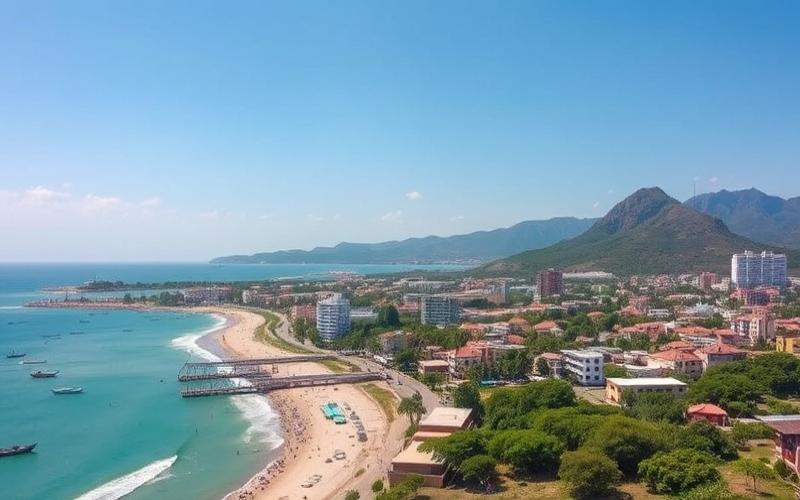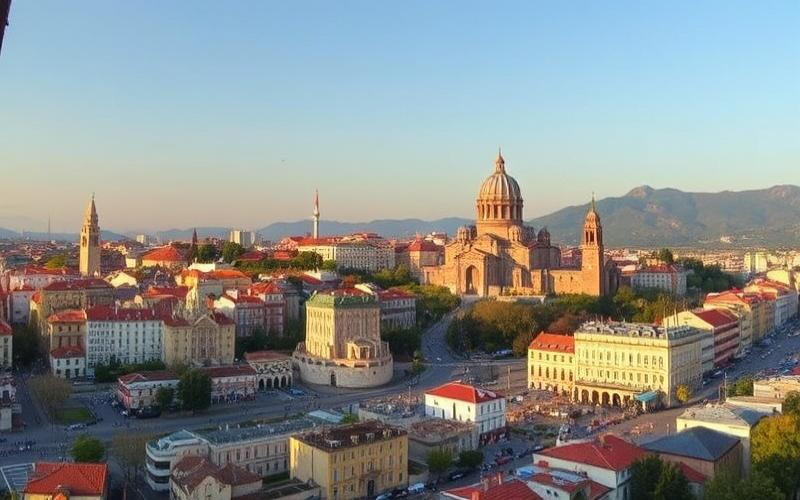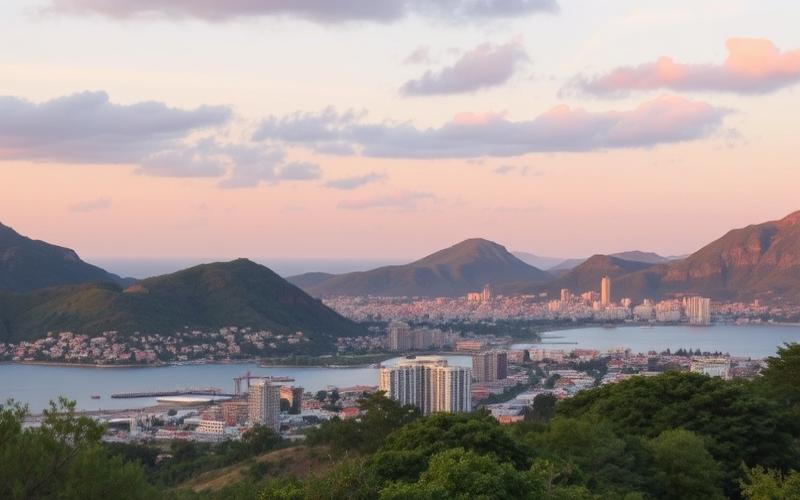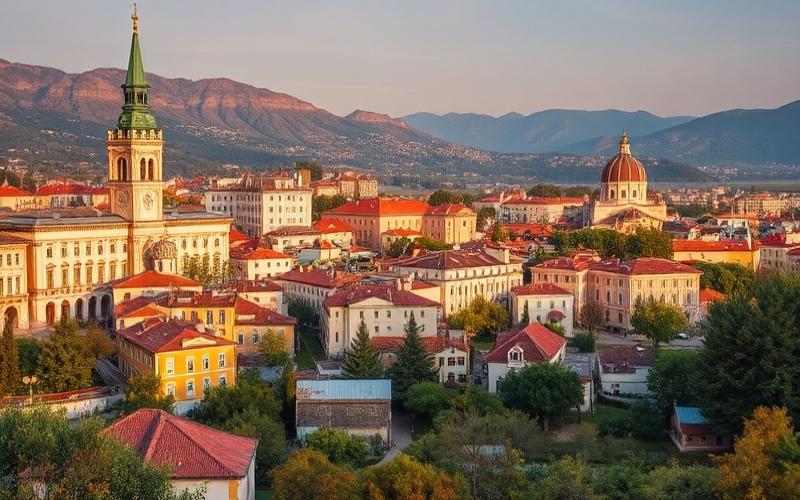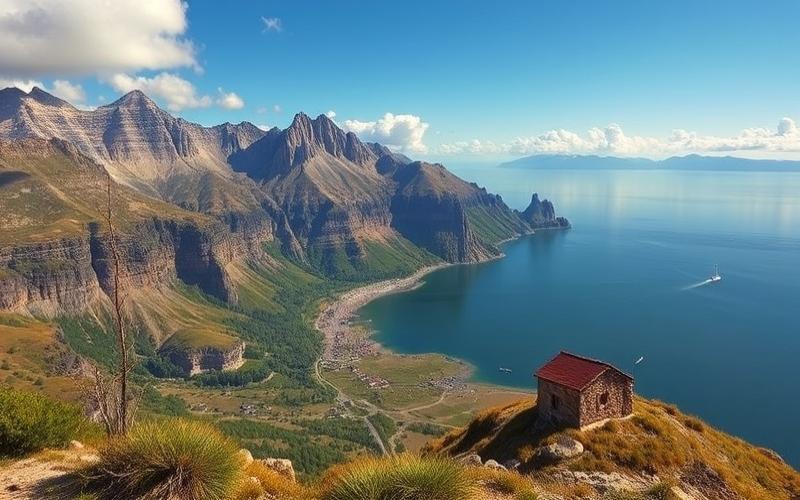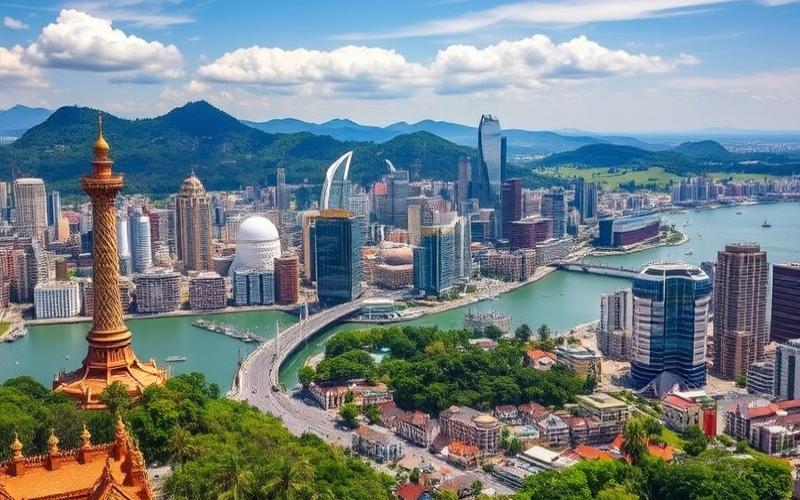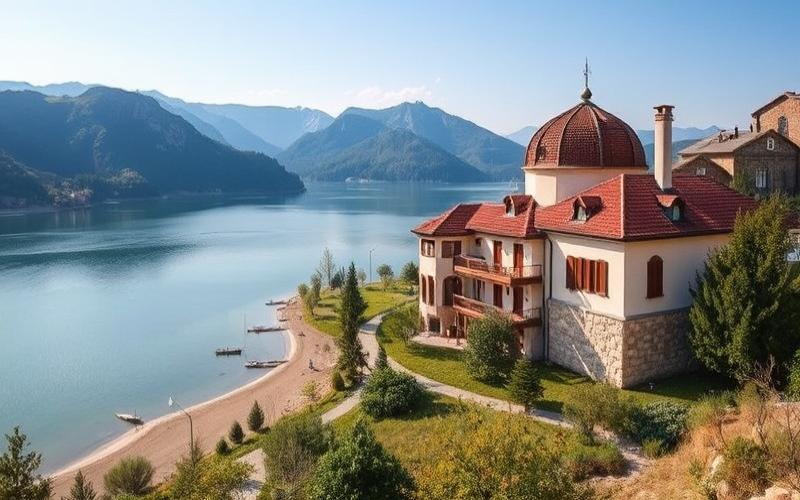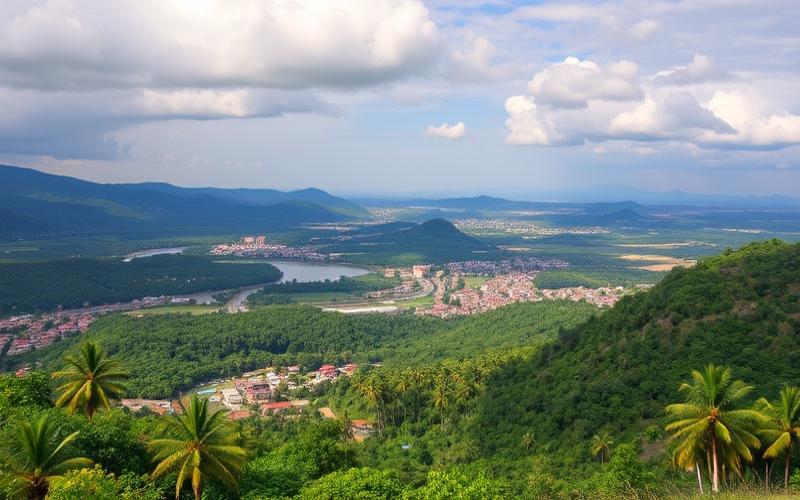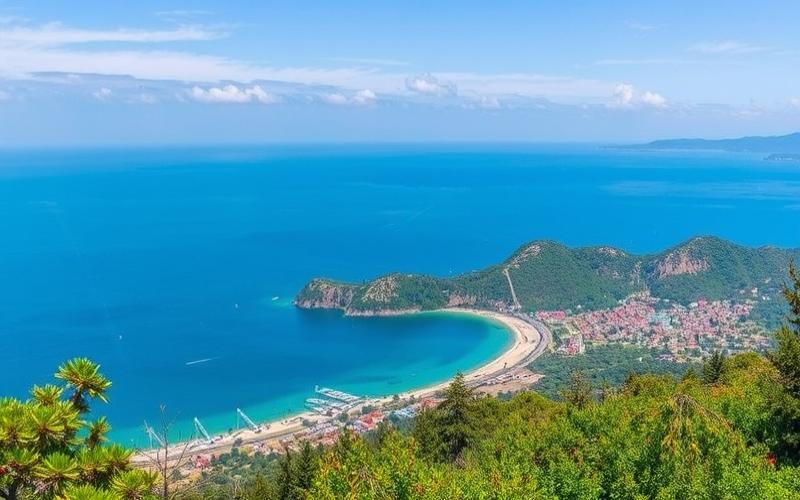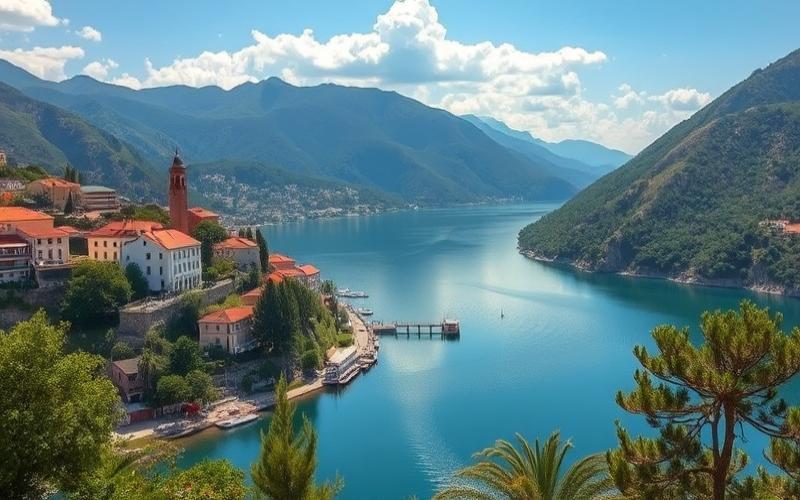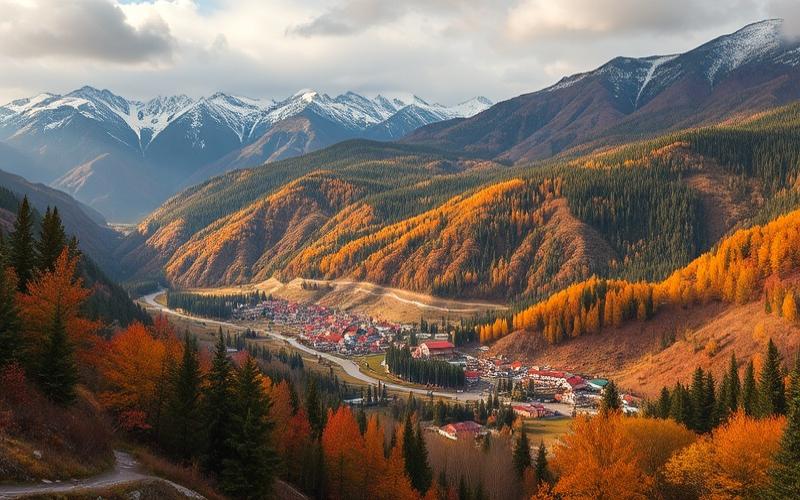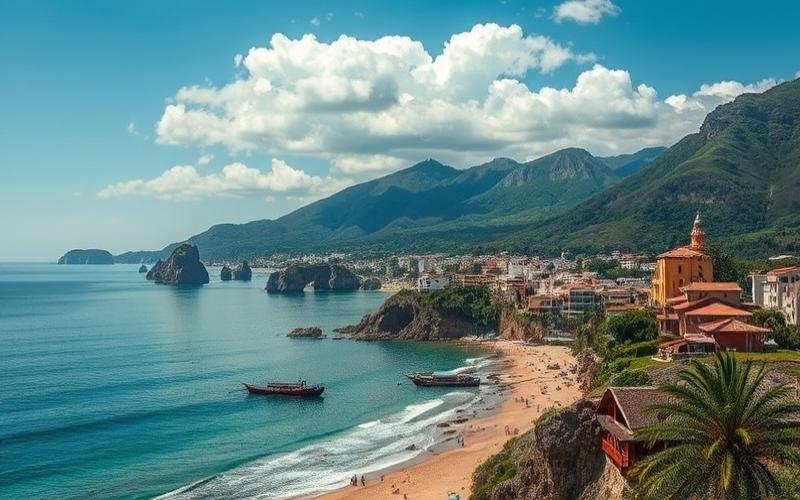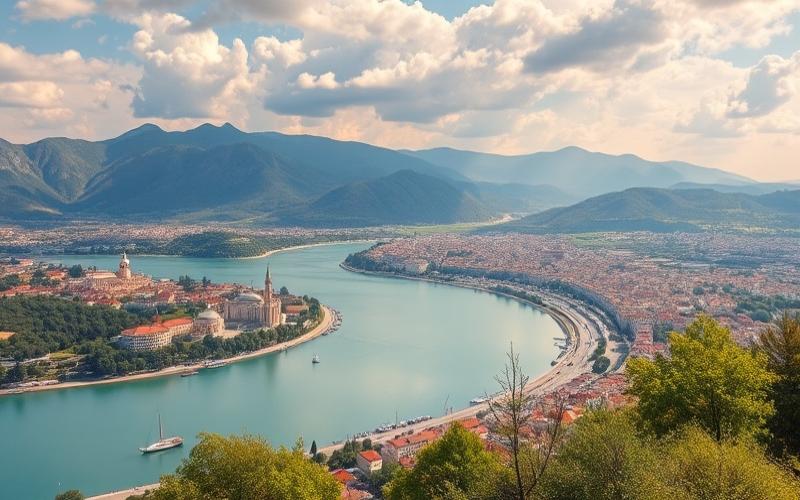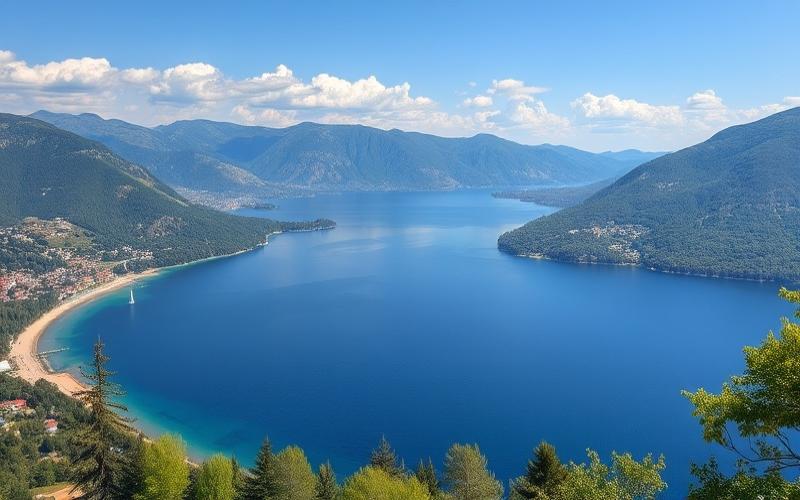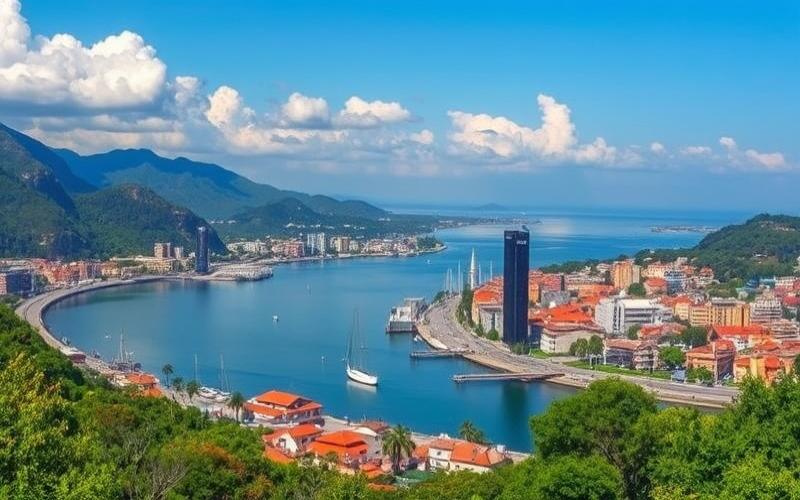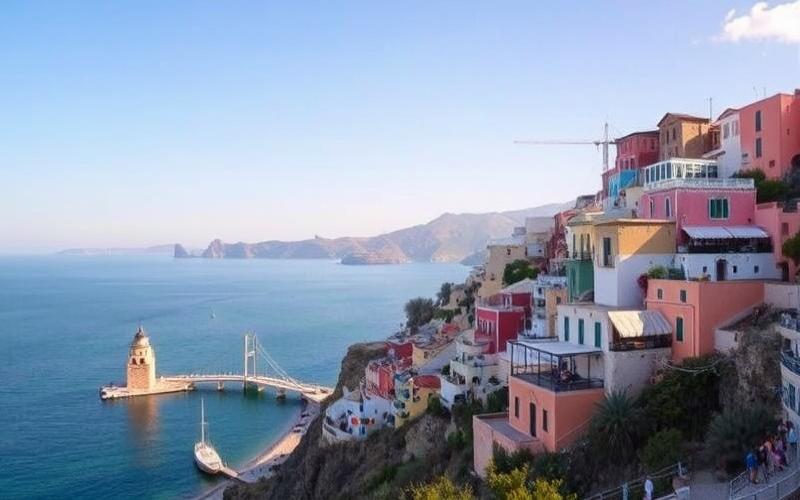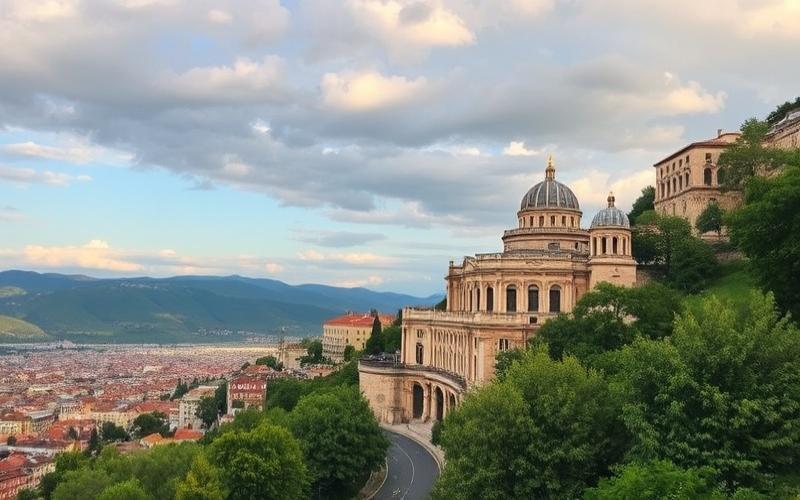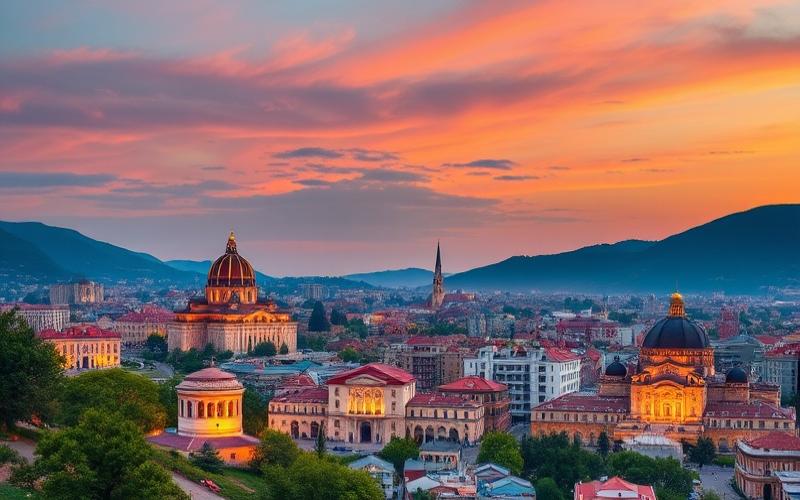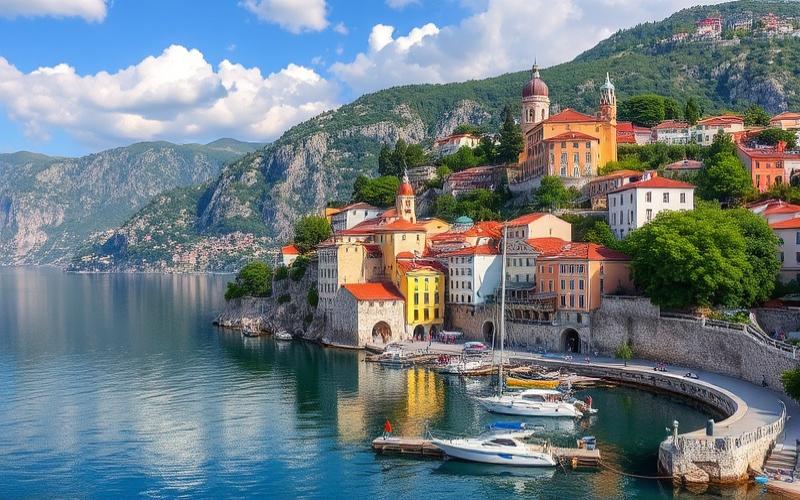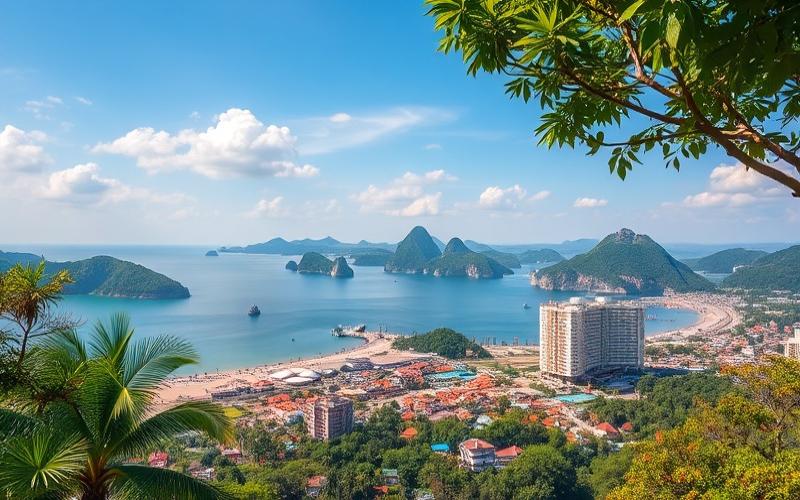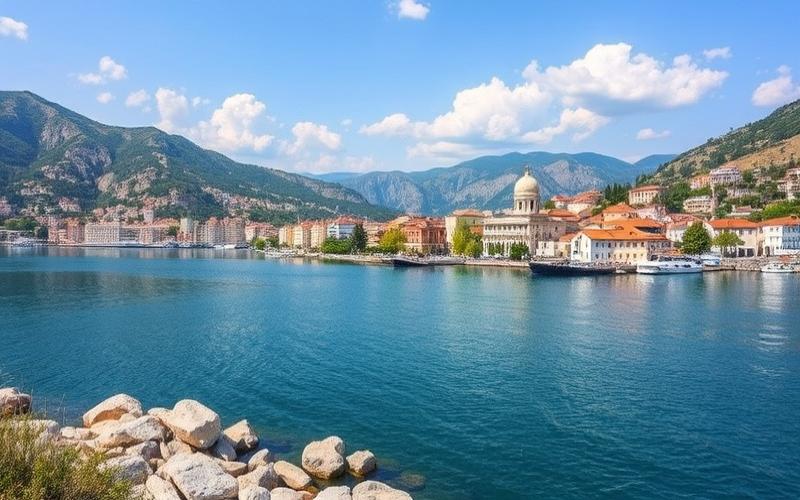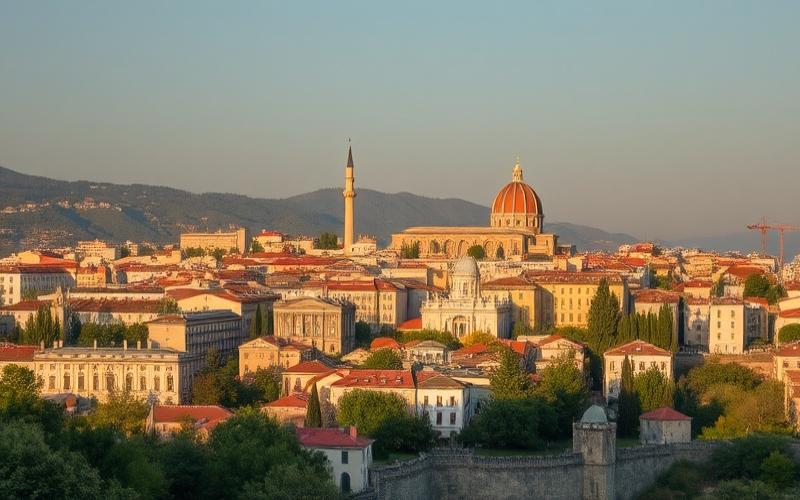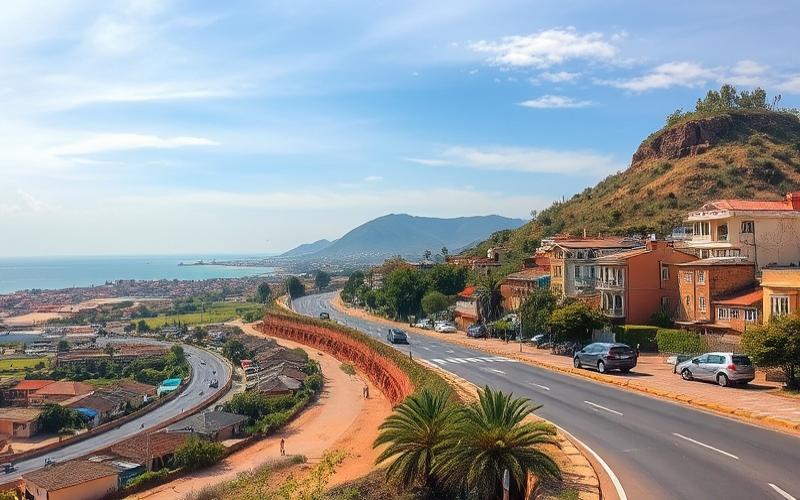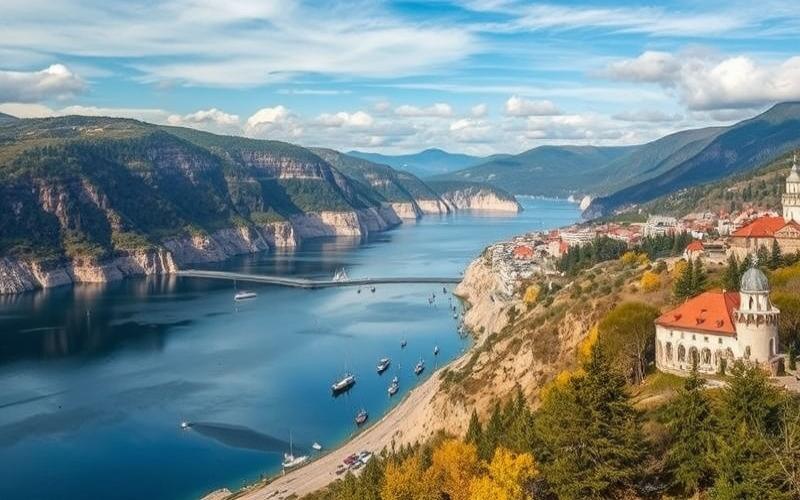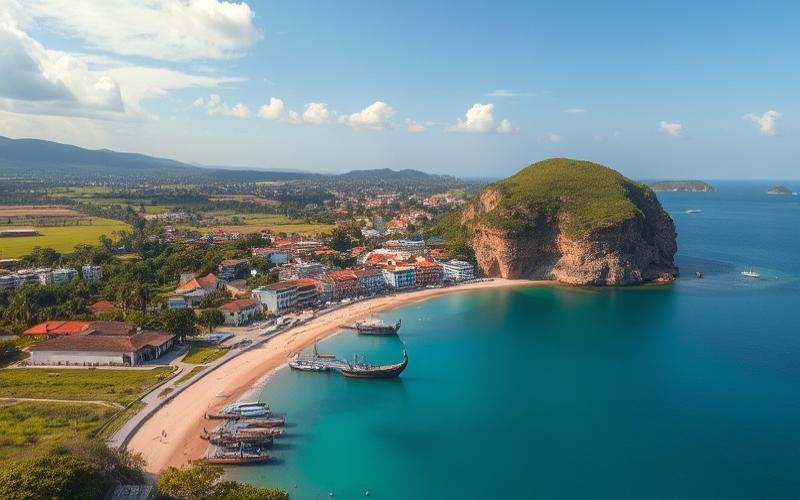
 Published on and written by Cyril Jarnias
Published on and written by Cyril Jarnias
Renovating a property in North Macedonia offers a unique blend of challenges and opportunities, combining the country’s historic charm with modern redevelopment possibilities. With its rich and varied architectural heritage, this Balkan region is increasingly attracting investors and renovation enthusiasts.
Buying and renovating in North Macedonia not only means preserving the authenticity of old structures but also adapting to local regulations and leveraging the economic benefits of the Macedonian real estate market.
This guide explores the essential steps for successfully completing a renovation project, from administrative procedures to tips on hiring local professionals, while highlighting the nuances that can influence the success of your investment.
The Benefits of Renovating a Property in North Macedonia
Benefits of Renovating a Property in North Macedonia
- Tax Incentives and Grants
The Macedonian government offers various tax benefits to encourage real estate investment, including tax relief depending on the nature of the investment. Foreign investors, for example, can obtain a temporary residence permit for any real estate purchase meeting a specified minimum value. Additionally, there are potential reductions on certain taxes related to renovation or purchase in specific sectors or under particular conditions. It is advisable to consult a local expert to identify all available opportunities.
| Type of Benefit | Description |
|---|---|
| Tax Relief | Possible reductions on property taxes |
| Residence Permit | Accessible through investment (threshold required) |
- Relatively Low Cost of Materials and Labor
Material prices and hourly rates for artisans are significantly lower than in most Western European countries. This allows investors to undertake ambitious projects with a more constrained budget.
In North Macedonia, overall costs remain among the most competitive on the European continent.
- Potential Increase in Property Value After Renovation
Renovation significantly enhances the property’s appeal and market value. After work is completed, it is common for the appreciation to far exceed the amount invested—especially if the building is located in a developing area or has strong heritage value.
- Increased Profitability
Thanks to the low initial cost and significant post-renovation appreciation potential, the return on investment proves particularly attractive for buyers aiming either for a quick resale with added value or stable rental income.
- Low initial cost
- High post-renovation valuation
- Growing appeal among expatriates and tourists
- Preservation of Unique Architectural Heritage
North Macedonia boasts a rich architectural heritage blending Ottoman, Byzantine, and Balkan influences; renovating these properties actively contributes to preserving this heritage while offering owners a valuable historical dimension added to their investment.
Rehabilitating these buildings also helps maintain the local cultural identity.
Concrete examples:
Historic neighborhoods such as Ohrid or certain central districts of Skopje have seen their appeal multiply thanks to several successful projects where abandoned old buildings were transformed into boutique hotels or high-end residences, thereby revitalizing their entire urban environment.
| Neighborhood/City | Result After Renovation |
|---|---|
| Ohrid Center | Increased tourist traffic |
| Skopje Old Quarter | Enhanced property valuation |
- Energy Efficiency Improvements Suited to the Climate
The continental climate, marked by cold winters and hot summers, makes thermal modernization essential (enhanced insulation, double-glazed windows, etc.), thereby providing not only increased comfort but also substantial savings on annual energy bills.
- Reduced heating/cooling consumption
- Lower carbon footprint
- Increased building longevity
Good to Know:
Renovating a property in North Macedonia offers numerous benefits, starting with the tax incentives and grants the government may provide to encourage renovations, particularly for improving energy efficiency. The cost of materials and labor remains relatively low compared to other European countries, making this venture a financially attractive option. Moreover, renovation increases the property’s market value and can offer an interesting return on investment. Preserving the country’s unique architectural heritage not only adds cultural and historical value but also enhances the tourist appeal of the concerned regions. Successful examples show how renovations have revitalized properties and entire neighborhoods, bringing economic and social dynamism. Finally, North Macedonia’s climate makes improving building energy efficiency essential, generating substantial long-term savings.
Step-by-Step Guide to a Successful Renovation
Key Steps for a Successful Property Renovation in North Macedonia
- Initial Planning
- Conduct a detailed property assessment: check structural condition, electrical and plumbing installations, and identify priorities.
- Clearly define renovation objectives (improving comfort, increasing value, adapting to family needs).
- Develop a realistic timeline considering local seasonal constraints.
- Specific Administrative Procedures
- Inquire with local municipalities about necessary permits for each type of work.
- Prepare and submit the complete file to the competent authorities (urban planning or construction), including architectural plans and technical descriptions.
- Ensure all work complies with Macedonian urban planning and environmental standards.
| Procedure | Concerned Authority | Required Documents |
|---|---|---|
| Building Permit | Local Municipality | Detailed plans, estimates |
| Special Authorization | Regional Urban Planning Service | Possible impact study |
- Selection of Materials and Contractors
- Prioritize materials suited to the local climate (good thermal insulation to withstand seasonal variations).
- Favor the use of traditional or local materials like stone or wood to harmonize with regional architecture.
- Request multiple quotes from different artisans/companies; check their references and specific experience in the Macedonian context.
- Budget Management
Define an overall budget covering:
- Material costs
- Labor
- Administrative fees
- Contingencies (allow for an additional margin)
| Item | Planned Budget (€) | Actual Expenses (€) |
|---|---|---|
| Materials | ||
| Labor | ||
| Professional Fees |
- Strict Adherence to Local Regulations
Ensure every step meticulously complies with:
- Urban planning rules specific to each municipality
- Applicable seismic standards in North Macedonia
“Non-compliance can lead to immediate work stoppage or financial penalties”
- Architectural and Interior Design Recommendations
Recommended styles:
- Traditional Balkan architecture: thick natural stone walls, sloped roofs covered with red tiles
- Bright interiors favoring natural ventilation; frequent use of solid wood
Design tips:
- Adopt a neutral palette inspired by the local landscape;
- Focus on natural textiles (wool, linen) that adapt well to the continental climate;
- Avoid overly contemporary styles that would distort the original character if dealing with an old structure.
- Logistics & Coordination
Practical checklist for efficiently organizing the worksite:
- Establish a precise schedule from the start integrating all trades involved (masonry – electricity – plumbing – carpentry – finishing)
- Set up a weekly meeting with the site/renovation manager to adjust deadlines & quickly resolve any technical issues
- Organize secure on-site storage to limit theft/damage
Key timeline management points:
- Order materials with long delivery times early
- Plan smart overlap between different phases when possible
To succeed in your project in North Macedonia: anticipate all local administrative procedures, carefully choose your local professional partners accustomed to the specific Macedonian regulatory context. Harmonize architectural style/interior design with regional traditions while optimizing energy performance suited to the climate.
Good to Know:
For a successful renovation in North Macedonia, start with rigorous planning that includes assessing the property’s condition and developing a realistic budget. Inquire about essential local administrative procedures and ensure you obtain all necessary permits while complying with local construction and urban planning regulations. When selecting materials, prioritize those that are not only durable but also suited to the local climate, and seek well-rated artisans or contractors familiar with local standards. Opt for architectural styles and interior designs that blend harmoniously with local architectural traditions to maintain the property’s heritage value. Finally, effective coordination of artisans and adherence to deadlines are crucial to avoid costly delays, so establish a precise work schedule and ensure professional availability at the right time.
Optimizing Your Renovation Budget and Financing
Analysis of Typical Costs Associated with Renovation in North Macedonia:
- Property Purchase Prices: The average price per square meter for a house ranges between €1,000 and €1,800, with significant variation depending on location, especially in Skopje where prices are higher than in secondary cities or rural areas.
Types of Housing and Average Monthly Rents:
| Type of Housing | Skopje (Center) | Bitola / Ohrid |
| Studio / 1 Room | €200–300 | €150–250 |
| 2-Room Apartment | €300–450 | €200–350 |
| 3-Room Apartment | €400–600 | €300–450 |
| Single-Family House (Suburban) | From €500 | From €400 |
- Monthly utilities for electricity, water, heating: €50 to €100/month
- High-speed internet: €15 to €25/month
- Labor costs vary significantly by region:
- In Skopje, rates are generally higher than in Bitola or Ohrid.
- In the tourist-heavy southwest (Ohrid), seasonal demand can temporarily drive up prices.
Evaluation of Available Financing Options:
Local and international banks offer several solutions to finance real estate renovation:
- Standard Mortgage Loans:
- Available from major Macedonian banks.
- Interest rates vary depending on the borrower’s profile and the banking institution; generally competitive compared to regional standards.
- Loan term often between 10 and 30 years.
- Specific Renovation Loans:
- Some institutions offer loans dedicated to energy or structural rehabilitation work, often with preferential rates if the goal is to improve the property’s energy efficiency.
- Local/International Grants:
- Occasional programs supported by the European Union or certain government agencies aimed at preserving architectural heritage or energy modernization. These aids can partially cover incurred costs in specific cases (listed historic buildings, etc.).
Tips for Reducing Costs Through Planning and Local Purchases:
- Recommended Strategies:
- Establish a precise schedule to avoid costly delays due to poor coordination between artisans/contractors.
- Prioritize direct purchase of materials from local suppliers: this significantly reduces logistical costs and the risk of price increases due to currency exchange.
- Compare several detailed quotes before any commitment – including for each trade separately (plumbing, electricity, carpentry…).
- Include a budget margin for unforeseen technical issues during the worksite.
Regional Comparison of Labor Costs in North Macedonia:
Hourly wages in the construction sector remain among the lowest in Europe but vary significantly across three main zones:
| Region | Wage Level |
| Skopje | Higher |
| Southwest Tourist Area | Moderately high/seasonally variable |
| Secondary Cities/Rural Areas (Bitola…) | Most affordable |
Local availability also influences these differences: a qualified artisan will be cheaper outside the capital but sometimes less available during certain periods.
Strategies for Establishing a Realistic Budget with a Contingency Margin:
- Practical list:
- Precisely define each budget item based on comparative quotes
- Systematically allocate a “contingencies” reserve representing at least 10% of the total estimated amount
- Update this budget after each key step
- Inform yourself about all additional taxes/fees related to both administrative procedures and connection to public networks
Good to Know:
To optimize your renovation budget in North Macedonia, start by analyzing typical costs, which vary depending on the property’s size and condition, while considering differences in labor costs between Skopje and rural regions. Explore available financing options, such as mortgages offered by local and international banks or grants for rehabilitation, which could ease the financial burden. Meticulous planning, purchasing locally produced materials, and comparing quotes can significantly reduce expenses. Include a margin for unforeseen expenses in your budget, as unexpected issues can arise, and assess labor costs by region to identify potential savings.
Selecting Materials: Making the Right Choice
The continental climate of North Macedonia, characterized by hot, dry summers and cold winters, directly influences the choice of materials for real estate renovation. Significant thermal variations require the use of materials capable of providing good thermal insulation while resisting freeze-thaw cycles, winter humidity, and summer dryness.
Key Local Environmental Factors to Consider:
- Extreme Temperatures: necessity to choose effective insulators (mineral wool, cork, wood fiber) that limit energy loss in winter and protect against overheating in summer.
- Seismic Risk in certain regions: choice of flexible or reinforced materials (treated local wood, adapted reinforced concrete).
- Water Availability: priority to water-efficient solutions when choosing plasters or coatings.
Available Local Materials
| Material | Environmental Advantages | Economic Viability |
|---|---|---|
| Local Stone | Very durable, low transport | Regional availability |
| Traditional Brick | Good thermal inertia | Moderate cost |
| Certified Local Wood | Low carbon impact | Local labor |
| Rammed Earth/Adobe | Hygrometric regulation | Inexpensive |
Bio-based materials are also recommended when locally available. Their low carbon footprint contributes to national energy efficiency goals.
Local Regulations
National standards are gradually aligning with European requirements:
- Obligation to integrate minimum thermal insulation, particularly for exterior walls and roofs.
- Promotion of sustainable solutions within the EU accession process.
- Mandatory compliance with seismic rules in certain zones.
Maximizing Energy Efficiency and Comfort
To optimize energy performance:
- Prefer composite systems: combination of stone/bio-based interior insulation or brick/mineral insulation.
- Install high-performance joinery (double/triple glazing), limit thermal bridges with suitable coatings.
- Use reflective roof coatings to reduce summer heat.
Practical Tips for Assessing Quality and Cost
- Systematically check the eco-label/certification (FSC for wood, CE/EN for other products).
- Compare the total cost: initial price + lifespan + foreseeable maintenance.
- Prefer a locally produced material to minimize transport/hidden costs.
- Request multiple quotes from regional suppliers; verify their experience with the specific Macedonian climate.
- Visually inspect each delivered batch: absence of cracks/mold/excessive moisture especially on stone/bricks/wood.
Choosing a material suited to the Macedonian climate ensures durability, maximum energy efficiency, and progressive compliance with new European regulations while supporting the local economy.
Good to Know:
When selecting materials for renovation in North Macedonia, it is crucial to consider the country’s moderate continental climate, characterized by hot summers and cold winters, as this requires materials offering durability and optimal insulation. Using local limestone, both abundant and economical, can be an eco-friendly and reliable solution, while respecting local construction standards focused on durability and energy efficiency. Moreover, adopting modern hollow bricks and double-glazed windows can significantly improve thermal comfort and reduce energy expenses. To ensure material quality and cost-effectiveness, it is advisable to compare certifications, request samples, and consult local construction experts.
Are you passionate about international real estate and looking to realize your investment projects abroad? I offer my expertise to guide you through every step of your journey. Benefit from personalized advice and tailored solutions adapted to your needs. Feel free to contact me to discuss your project and turn your real estate dreams into reality.
Disclaimer: The information provided on this website is for informational purposes only and does not constitute financial, legal, or professional advice. We encourage you to consult qualified experts before making any investment, real estate, or expatriation decisions. Although we strive to maintain up-to-date and accurate information, we do not guarantee the completeness, accuracy, or timeliness of the proposed content. As investment and expatriation involve risks, we disclaim any liability for potential losses or damages arising from the use of this site. Your use of this site confirms your acceptance of these terms and your understanding of the associated risks.

